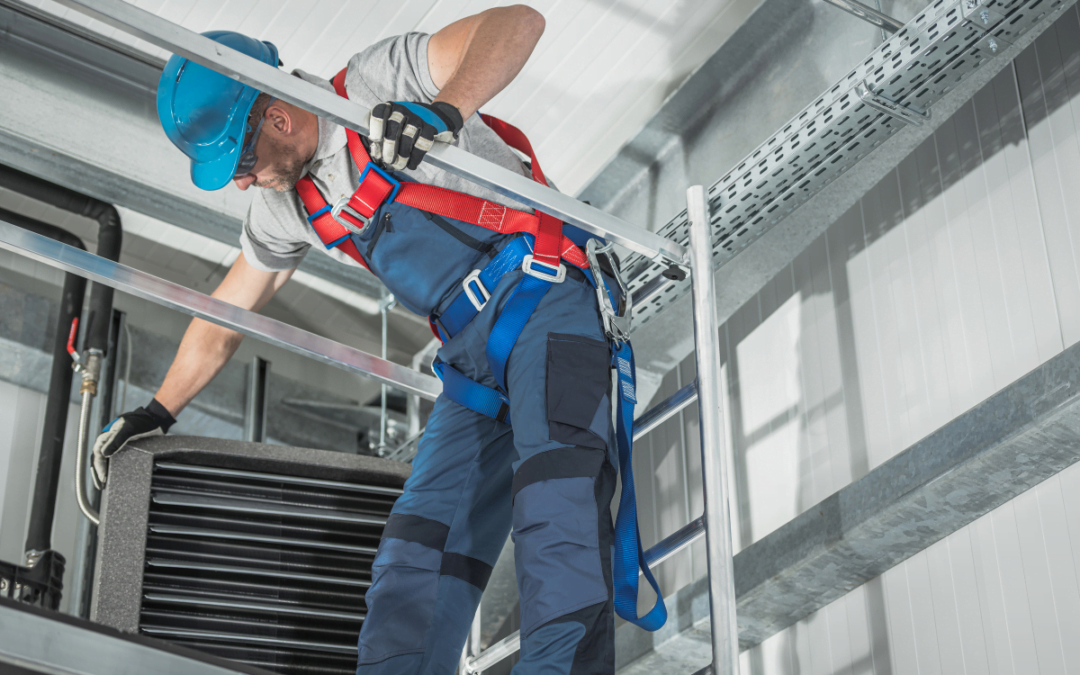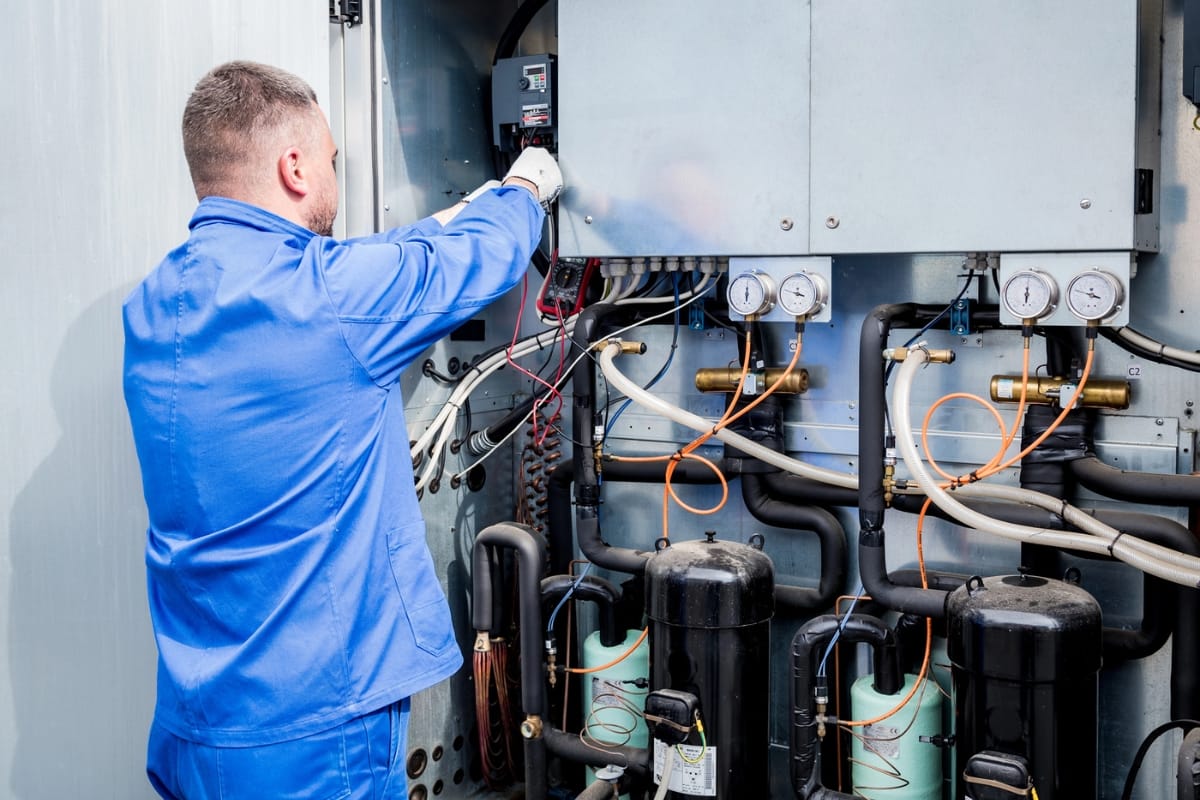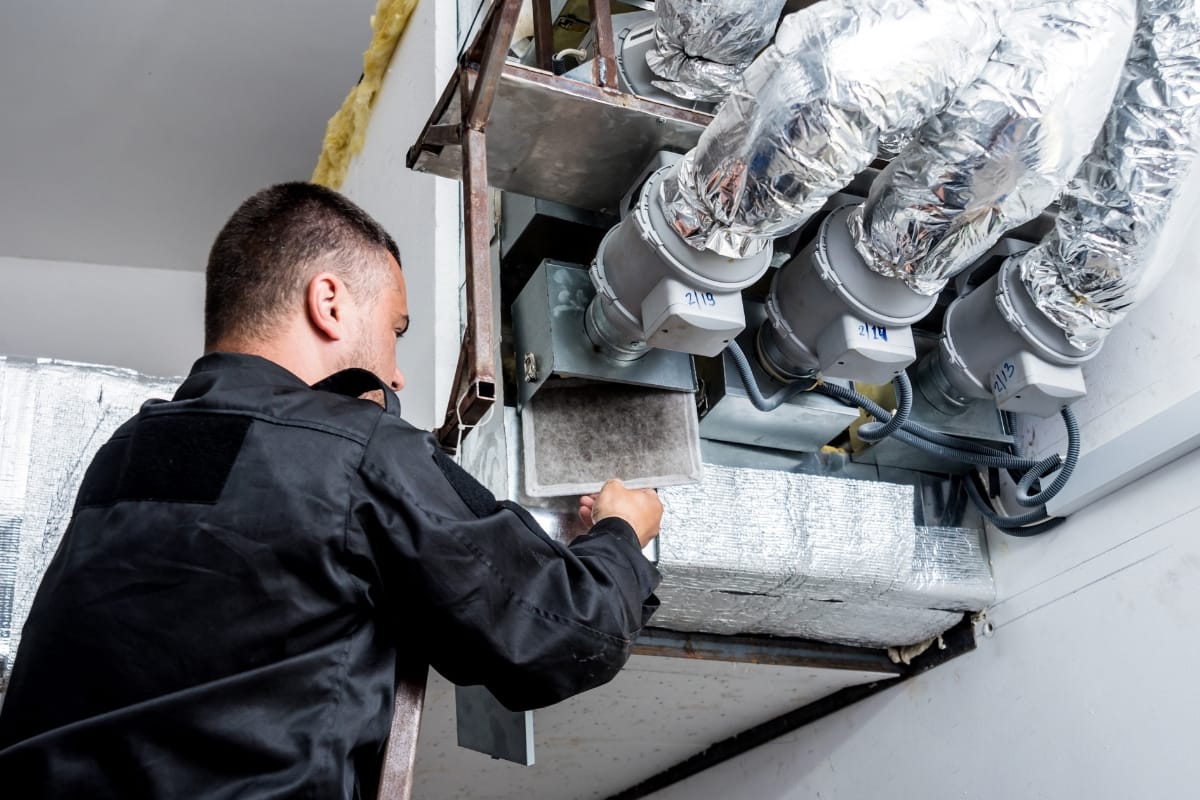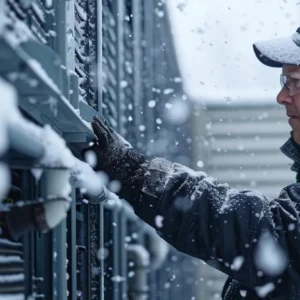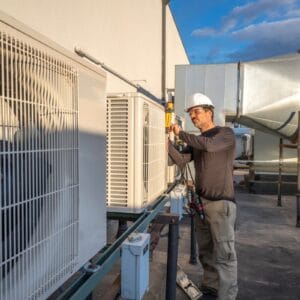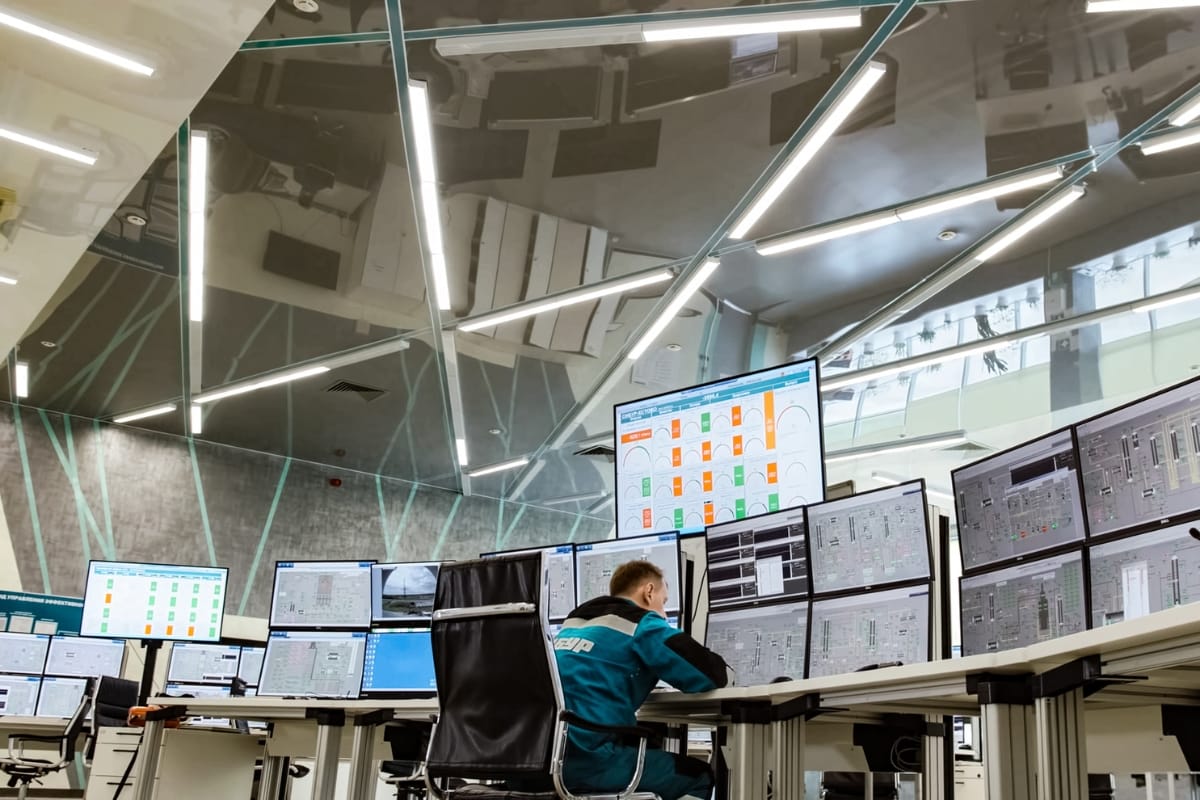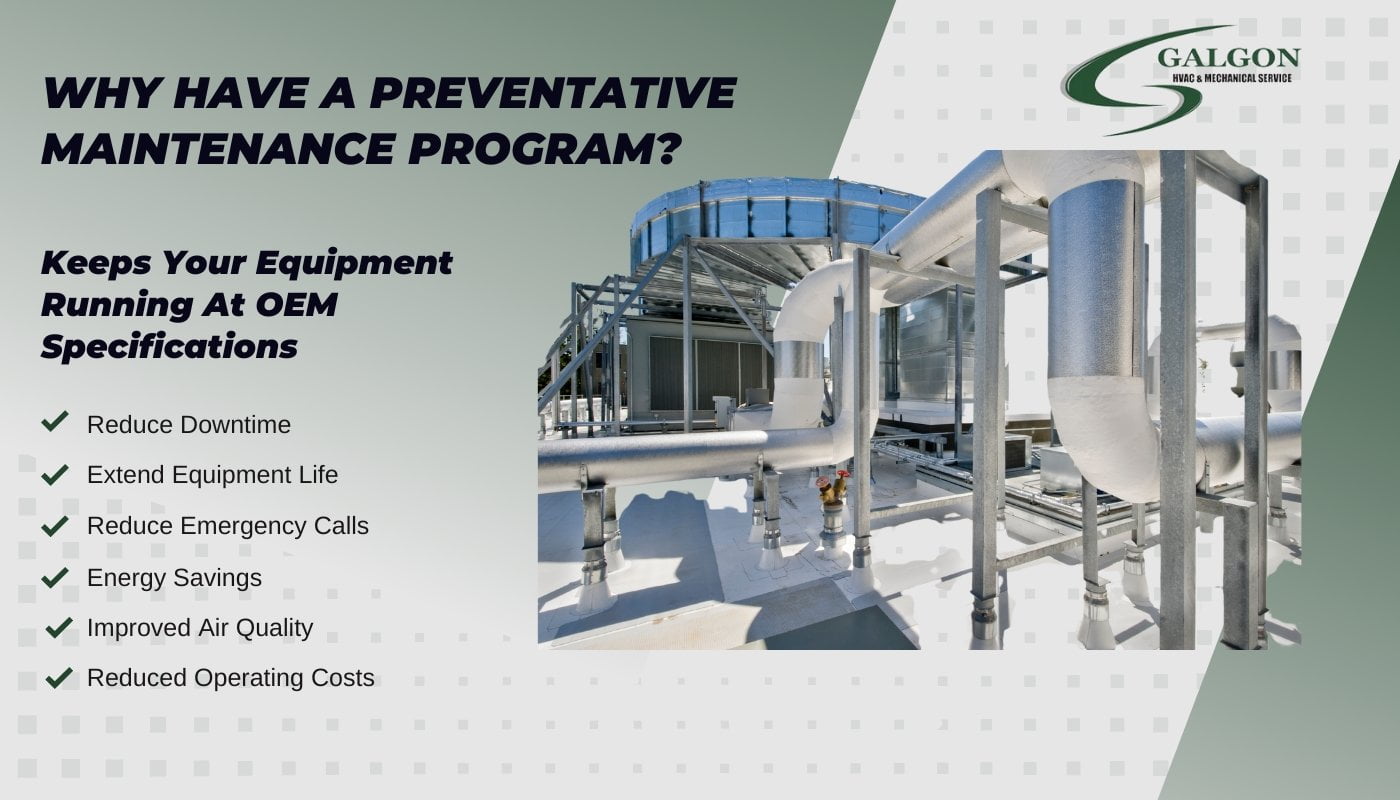In an era where sustainability and environmental consciousness are becoming increasingly important, finding efficient and sustainable solutions for our everyday needs has become an essential goal. One area where this need for efficiency is particularly pressing is in the realm of commercial cooling and heating.
If you’re curious about the future of sustainable commercial cooling and heating and how energy efficient HVAC systems are transforming the way we control indoor environments, join us on this journey. Together, let’s unlock the potential of these groundbreaking solutions and pave the way toward a greener, more energy-efficient world.
Cut Costs And Stay Cool!
The Importance Of Energy Efficiency In Commercial Cooling And Heating
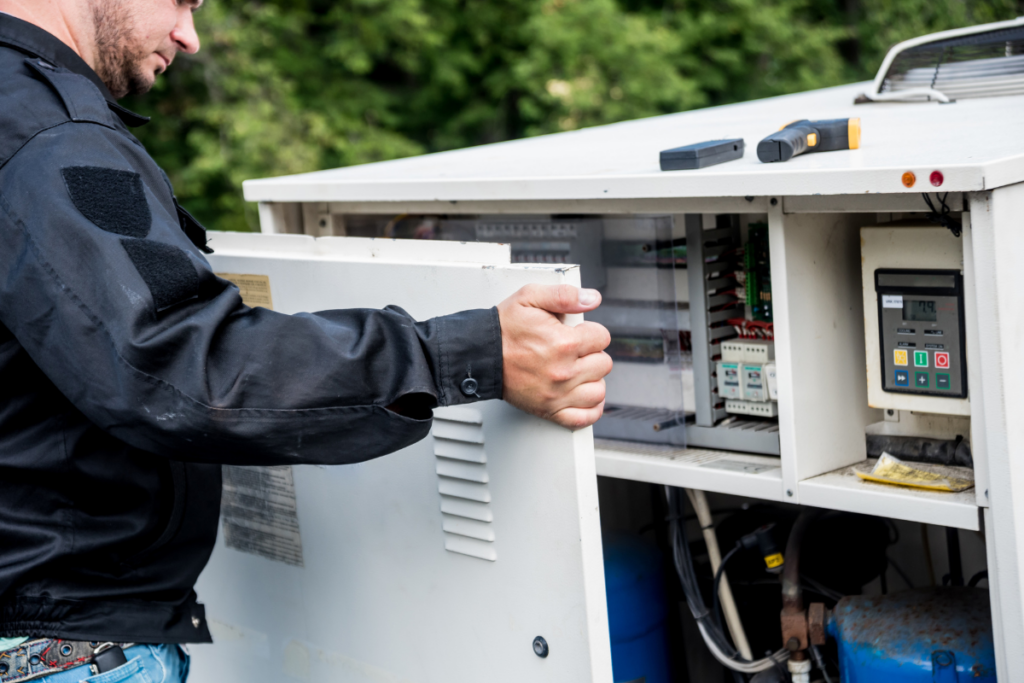
Energy efficiency in commercial cooling and heating systems is crucial for several reasons. By focusing on energy efficiency, businesses can not only reduce their environmental impact but also save on energy costs. In this blog post, we will explore the importance of energy efficiency in commercial cooling and heating systems and how it is shaping the future of sustainable HVAC.
- Cost Savings: One of the primary benefits of energy-efficient commercial cooling and heating systems is the significant cost savings they offer. By optimizing energy consumption, businesses can reduce their utility bills and allocate their resources more efficiently. Energy efficient HVAC systems use advanced technologies such as variable speed drives, smart thermostats, and improved insulation to minimize energy waste and maintain optimal temperature levels.
- Environmental Impact: Another critical aspect of energy-efficient commercial cooling and heating is its positive impact on the environment. Traditional HVAC systems often consume large amounts of electricity, contributing to greenhouse gas emissions and climate change. Energy-efficient systems, on the other hand, utilize renewable energy sources and innovative technologies to minimize carbon footprints. By adopting energy efficient HVAC systems, businesses can play a vital role in reducing environmental degradation.
- Compliance with Regulations: Many countries and regions have implemented strict regulations and standards regarding energy efficiency in commercial buildings. By adhering to these regulations, businesses can avoid penalties and legal complications. Energy efficient HVAC systems help businesses meet these standards, ensuring compliance with local and national energy efficiency guidelines.
- Enhanced Comfort and Productivity: Energy efficient HVAC systems not only reduce energy consumption but also offer improved comfort for occupants. These systems provide precise temperature control, ensuring that employees and customers experience optimal indoor conditions. Comfortable environments have been shown to enhance productivity, reduce absenteeism, and improve overall satisfaction. By investing in energy-efficient cooling and heating systems, businesses can create a more productive and comfortable workplace.
- Future of Sustainable Cooling and Heating: The demand for energy efficient HVAC systems is increasing rapidly, driven by the need for sustainable practices and the rising cost of energy. As businesses strive to reduce their carbon footprint and operate in an eco-friendly manner, energy-efficient cooling and heating systems play a crucial role. These systems are becoming smarter, incorporating IoT (Internet of Things) capabilities to optimize energy consumption and enhance performance.
Investing in energy efficient HVAC systems for commercial cooling and heating is essential for businesses aiming to reduce costs, minimize environmental impact, comply with regulations, and enhance occupant comfort and productivity. As the world moves towards sustainable practices, energy efficient HVAC systems are set to become the future of commercial cooling and heating. By embracing these technologies, businesses can contribute to a greener and more sustainable future.
Advanced Sensors And Controls: Enhancing Efficiency And Performance
Advanced sensors and controls play a crucial role in enhancing the energy efficiency of HVAC systems. These innovative technologies have revolutionized the way heating, ventilation, and air conditioning systems operate, leading to significant energy savings and reduced environmental impact.
Here are some ways in which advanced sensors and controls contribute to improving the energy efficiency of HVAC systems:
- Real-Time Monitoring: Advanced sensors continuously monitor various parameters such as temperature, humidity, and occupancy levels in different zones of a building. This real-time data allows the HVAC system to adjust its operation based on the actual conditions, optimizing energy usage accordingly. For example, if a particular area is unoccupied, the system can automatically reduce the cooling or heating output, leading to energy savings.
- Demand-Based Ventilation: By integrating sensors that measure the CO2 levels in a building, HVAC systems can implement demand-based ventilation. When occupancy is low, the system can reduce the amount of fresh air intake, saving energy expended on conditioning and distributing air unnecessarily. This approach ensures that only the required amount of ventilation is provided, maintaining indoor air quality while minimizing energy waste.
- Adaptive Controls: Advanced control algorithms can analyze historical data and predict future usage patterns. By taking into account factors such as weather forecasts, occupancy schedules, and thermal profiles of the building, these controls can proactively adjust HVAC settings to optimize energy consumption. For example, the system can pre-cool or pre-heat a space based on anticipated occupancy, ensuring comfort while minimizing energy usage during peak demand periods.
- Zoning and Individual Control: HVAC systems equipped with advanced sensors and controls allow for zoning and individual control capabilities. This means that different areas or rooms within a building can be independently controlled based on their specific requirements. Occupants can adjust the temperature and airflow in their respective zones, preventing energy wastage in unoccupied or less frequently used areas.
- Remote Monitoring and Optimization: Many advanced HVAC systems offer remote monitoring and optimization features. Building operators can access real-time data and control the system through a centralized interface, even from a remote location. This enables proactive troubleshooting, fine-tuning of system settings, and identification of potential energy-saving opportunities, leading to improved overall efficiency.
- Integration with Building Automation Systems: Advanced sensors and controls in HVAC systems can seamlessly integrate with building automation systems. This integration allows for coordinated operation with other building components, such as lighting and shading controls. By sharing data and optimizing energy usage collectively, these integrated systems enhance overall energy efficiency and occupant comfort.
Advanced sensors and controls have revolutionized the way HVAC systems operate, resulting in improved energy efficiency and reduced environmental impact. As the future of sustainable commercial cooling and heating, energy efficient HVAC systems are an integral part of creating more environmentally friendly and cost-effective buildings.
Intelligent Zoning Techniques: Maximizing Energy Savings
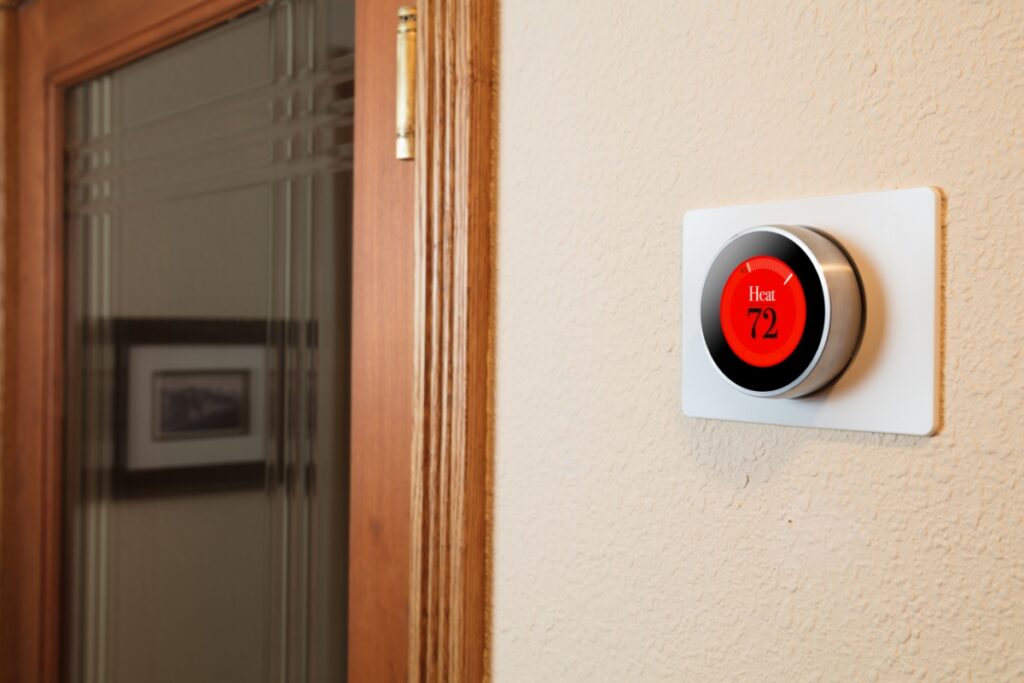
Intelligent zoning techniques refer to a smart and efficient way of controlling the heating, ventilation, and air conditioning systems in buildings. By dividing the space into different zones and adjusting the temperature and airflow based on the specific needs of each zone, intelligent zoning techniques maximize energy savings and improve overall comfort.
Here are some key points to understand how intelligent zoning techniques work and their benefits in terms of energy efficiency:
- Zone Identification: Intelligent zoning systems identify different areas within a building that have varying heating and cooling requirements. These zones could be individual rooms, floors, or even specific areas with similar usage patterns.
- Individual Temperature Control: With intelligent zoning, each zone has its temperature sensors and controls, allowing occupants to adjust the temperature according to their preferences. This level of control prevents over-cooling or overheating in areas that are not in use or require different temperature settings.
- Optimal Energy Distribution: By regulating the temperature and airflow in each zone, intelligent zoning techniques ensure that energy is distributed efficiently throughout the building. This means that energy is directed only where it is needed, rather than wasting it on areas that are unoccupied or require less conditioning.
- Occupancy Sensors: Intelligent zoning systems often incorporate occupancy sensors to detect whether a zone is occupied or not. When a zone is unoccupied, the system can automatically adjust the temperature or even shut down the HVAC system in that area, resulting in significant energy savings.
- Time Scheduling: Another feature of intelligent zoning techniques is the ability to schedule temperature adjustments based on occupancy patterns. For example, if a certain zone is not used during weekends or after office hours, the system can automatically lower the temperature to save energy during those periods.
- Enhanced Comfort: Intelligent zoning not only maximizes energy savings but also enhances comfort for building occupants. Each zone can be set to a specific temperature range that suits its particular usage, ensuring optimal comfort levels without wasting energy.
- Cost Savings: By reducing energy consumption, intelligent zoning techniques lead to substantial cost savings in commercial buildings. Lower energy bills contribute to the overall financial sustainability of a business and make HVAC systems more economically viable in the long run.
Intelligent zoning techniques offer a smart and efficient solution for maximizing energy savings in commercial buildings. By dividing the space into different zones, adjusting temperature and airflow based on occupancy and usage patterns, and incorporating advanced control features, intelligent zoning systems optimize energy distribution and enhance comfort. With their ability to reduce energy consumption and lower costs, these techniques are paving the way for a more sustainable and energy-efficient future in HVAC systems.
Overcoming Challenges: Addressing Common Concerns With Energy Efficient HVAC
Implementing energy efficient HVAC systems in commercial buildings is crucial for reducing energy consumption, lowering utility costs, and minimizing environmental impact. However, there are common concerns that need to be addressed when considering the adoption of these systems. In this article, we will explore some of these challenges and provide practical solutions to overcome them.
- High Initial Costs: One of the main concerns with energy efficient HVAC systems is the higher upfront investment compared to traditional systems. However, it’s important to consider the long-term benefits and cost savings that these systems can provide. By using energy efficient technologies, businesses can significantly reduce their energy bills over time, offsetting the initial investment.
- Compatibility with Existing Infrastructure: Retrofitting existing buildings with energy efficient HVAC systems can pose challenges due to compatibility issues. However, advancements in technology have made it easier to integrate these systems seamlessly into existing infrastructures. It’s essential to work with experienced professionals who can assess your building’s requirements and provide customized solutions that align with your existing infrastructure.
- Maintenance and Repairs: Another concern is the maintenance and repair costs associated with energy efficient HVAC systems. However, these systems are designed to be durable and require less maintenance compared to traditional systems. Regular maintenance and timely repairs are still necessary to ensure optimal performance and longevity. Building owners should establish a maintenance schedule and work with certified technicians to address any issues promptly.
- Complexity of Controls: Energy efficient HVAC systems often come with advanced control features, which can be overwhelming for building owners and operators. However, manufacturers provide comprehensive training and support to ensure users can effectively utilize these controls. It’s crucial to invest in employee training and educate staff on the benefits and proper operation of the system to maximize its efficiency.
- Perception of Comfort: Some individuals might be skeptical about the perceived comfort levels of energy efficient HVAC systems. However, modern energy efficient systems are designed to provide optimal comfort while reducing energy consumption. By choosing appropriate equipment and settings, businesses can achieve a comfortable environment for occupants while minimizing energy wastage.
- Lack of Awareness and Information: Finally, a common challenge is the lack of awareness and information about energy efficient HVAC systems. Many building owners and operators are unaware of the available technologies and their benefits. It’s essential to educate oneself on the latest advancements and consult with industry professionals who can provide valuable insights and guidance.
While there are challenges associated with implementing energy efficient HVAC systems, they can be overcome with careful planning, preventative HVAC maintenance, and the right expertise. By addressing concerns, businesses can embrace sustainable practices and reap the long-term benefits of energy efficiency.
Experience Pure Comfort And Savings: Harness The Potential Of Energy Efficient HVAC!
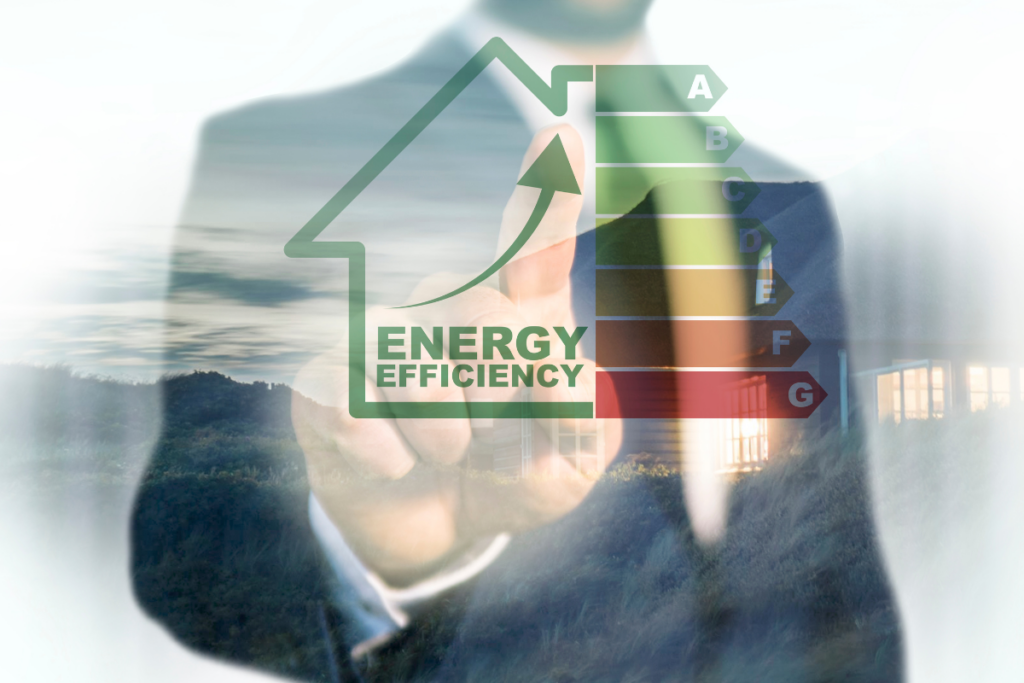
As businesses increasingly prioritize sustainability, embracing energy efficient HVAC systems is a logical step forward. By reducing energy consumption and promoting a healthier environment, these systems play a pivotal role in creating a greener and more sustainable future.
Now, if you’re seeking top-notch energy efficient HVAC services, Galgon HVAC is the place to go. Our team of experts is committed to providing you with the ultimate climate control solution, maximizing both your comfort and cost savings. With our cutting-edge technologies and industry-leading expertise, we guarantee a seamless integration of energy-efficient systems into your business.
Contacting Galgon HVAC means gaining access to a wealth of knowledge and personalized solutions tailored to your specific needs. Our friendly and professional staff will guide you every step of the way, ensuring a smooth and hassle-free experience. Say goodbye to exorbitant utility bills and hello to a greener, more sustainable future.
Don’t miss out on the opportunity to transform your commercial space into an energy-efficient haven. Reach out to Galgon HVAC today and experience the difference we can make. Trust us to deliver exceptional service and enhance your indoor environment while saving you money. Make the smart choice and let Galgon HVAC revolutionize your HVAC system today!

